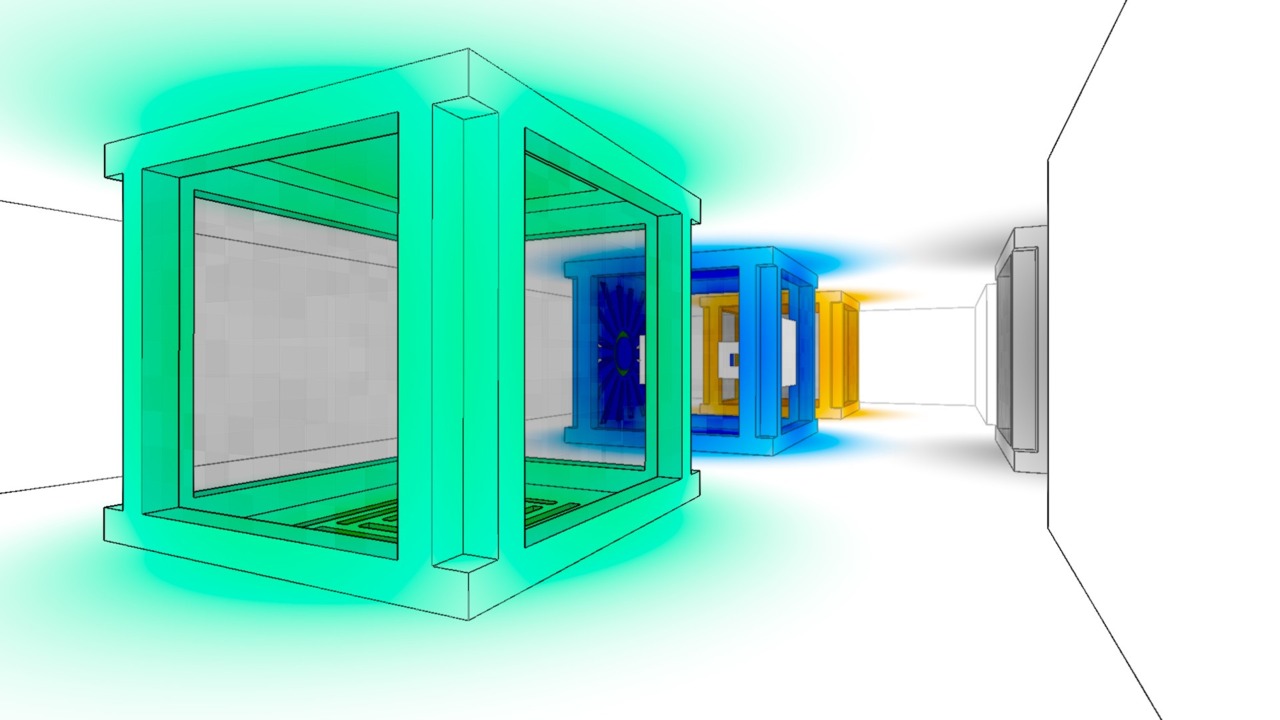Antichamber is a game that demands patience. Its puzzles can't be rushed, nor their solutions fully grasped without a second's thought. No, this is a puzzle game that rewards a gentle, studious approach of careful logic and inventive experimentation. It helps to keep an open mind too, for there are few rules that Antichamber doesn't shatter with its swaths of non-Euclidean space and its stark, stylish visuals. But while its trials of the mind verge on the extreme at times, they are an integral part of this remarkable achievement. Few games reward you with such an overwhelming feeling of satisfaction and intelligence, or boast such thought-provoking game design.
Part of the charm lies in Antichamber's reluctance--however complex the task--to provide you with anything more than the simplest of instructions. There's no hand-holding, no drawn-out tutorial section, and no quick-and-easy puzzle to get you started. Instead, you're placed in a small chamber where the walls are covered with the basic first-person controls, and an interactive map points you towards the first puzzle. It's from this room that you see the many secrets of the game unfold. With each puzzle you discover, the map grows larger, while another wall is gradually filled with unsettling but clever sketches and clues that you uncover during your journey.
Aside from providing visual feedback on your progress, this starting chamber performs an important task; it is the only constant in a journey full of misdirection. There are no set paths to wander down or a narrative to point you in the right direction. The joy of Antichamber is in discovering things about the world that shock, mystify, and teach. When you encounter a puzzle, you never feel like you were pushed there or that a character forced you. The path you take through Antichamber is guided by your own curiosity and your own inventiveness. So it helps that at any point you can instantly jump back to the starting chamber to gather your thoughts and see the sprawling path you've carved through the many puzzles.
Those puzzles are unlike anything you may have seen before. The simple white walls and thin black lines that make up each room, hallway, and tunnel provide an impeccable distraction-free backdrop for the most complex of ideas. There are rooms where stairs that point up or down lead back to the same starting point, and rooms where four right turns lead you into a completely different area. Floors appear in midair, walls disappear before your eyes, and huge chasms send you on endless loops back to their peaks. To succeed in Antichamber, you must forget the rules and embrace its unique way of thinking. And that applies not only to the laws of physics, but to the rules of video games too.
Where you might be inclined to push forward, going back may open up a new set of options. Jumping headfirst into a chasm might normally spell death, but here it is a means of exploring areas that are seemingly out of reach. There are no set rules to how these rooms are connected or how they interact with one another, which makes wrapping your head around the game's most wild ideas a stiff but inherently satisfying mental challenge. If you get stuck, your only option is to mull over each puzzle, and keep trying until you get it right. What little help you receive comes in the form of cryptic clues and illustrations scrawled onto walls that kick-start the thought process rather than give you direct hints about each puzzle.
What really messes with your mind, though, are the later combinations of logical and lateral thinking. The logical puzzles take the form of Antichamber's most traditional game-like mechanic, which is a gun that lets you pick up and place small cubes around the environment. The cubes are used to open doors, trigger laser trip wires, and build objects that can be used as bridges and steps. Those puzzles alone are tricky enough, but to switch between lateral and logical ways of thinking--and to often combine the two--is a challenge that can break even the most astute of minds. But with such great trials come even greater moments of elation. It helps, too, that the solutions never seem unfair.
Even during the later stages of your adventure, Antichamber continues to surprise with its puzzles and delight with their solutions. Most impressive of all is how it creates a sense of foreboding and horror, not through its narrative or with cheap scare tactics, but with the puzzles themselves. When the very fabric of reality is made meaningless by a world where up can mean down, left can mean right, and walls can be nothing at all, everything takes on a deeply sinister edge. The soundtrack that backs it all up adds to the foreboding, building up as it does from nothing into a fittingly eerie, synth-driven ambient soundscape.
There are moments in Antichamber that remain with you long after you've uncovered your last clue and solved your last puzzle. What has been created within its barren walls is supremely intelligent and wildly inventive, and Antichamber doesn't give up its ideals for the sake of accessibility. The few spells of frustration are fleeting and never compromise Antichamber's powerful achievements in design and style. "Every journey is a series of choices," you're told at the beginning of your adventure. You should choose to begin yours in Antichamber: it really is quite unlike anything else.
'
